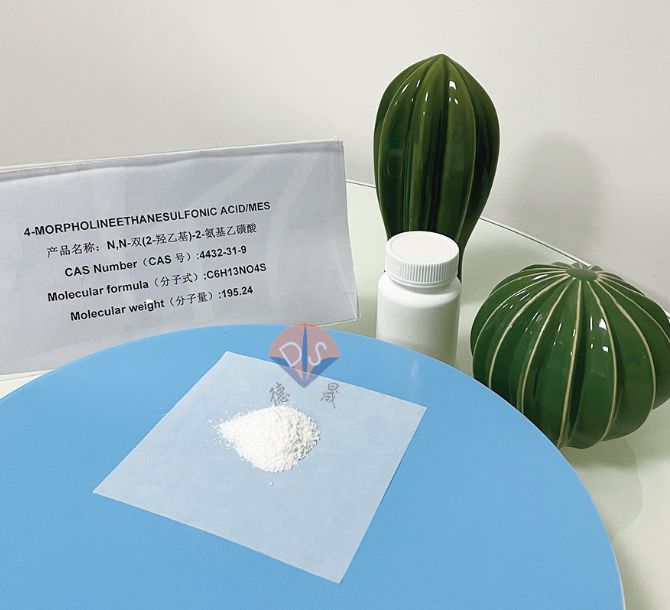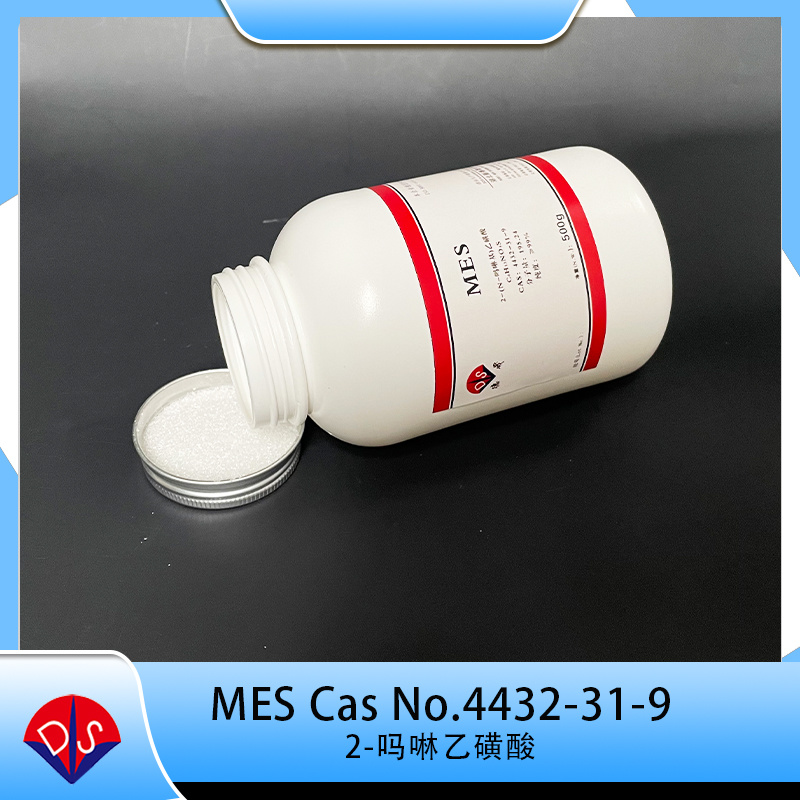MES buffer: a stable guardian of plant growth
Release time:
2025-08-29
MES buffer, also known as 2-morpholine ethanesulfonic acid, is a commonly used Good's buffer in biological experiments and is gradually becoming a secret weapon for promoting healthy plant growth. It not only helps maintain the stability of the pH value of the culture medium, but also plays an indispensable role in regulating the internal physiological processes of plants. Next, we will delve into how MES promotes plant growth.

MES buffer
MES stabilizes pH and helps plant growth
Plants release various root exudates into the culture medium during their growth cycle, which can alter the chemical properties of the medium, including lowering the pH. When there is a significant change in pH value, plants may face problems such as poor nutrient absorption and slow growth. As an acid-base buffer, MES can stabilize the pH value of the culture medium at around 5.8, providing ideal growth conditions for plants. A stable pH environment ensures that plants can effectively absorb nutrients and avoid growth disorders caused by pH fluctuations, thereby promoting normal plant development and growth.
The impact and significance of MES on PAL and POD activity.
In addition to stabilizing pH values, MES also demonstrated regulatory effects on the activity of two key enzymes in plants - phenylalanine ammonia lyase (PAL) and peroxidase (POD). PAL participates in the metabolism of this propane class substance and is an important step in the synthesis of disease resistant compounds in plants; POD is one of the key enzymes in the reactive oxygen species defense system, which not only protects cells from oxidative damage, but also accelerates the aging process of plants in some cases. Research has shown that the activity of these two enzymes decreases when MES is added to the culture medium. When plants are no longer subjected to the stress caused by pH changes, they can better utilize resources for growth.
MES opens a new chapter in green agriculture.
With the development of agricultural technology, MES has shown great potential in promoting plant growth. It not only helps solve the common pH management problems in traditional agricultural production, but also provides a new perspective for studying plant physiology. In the future, we can look forward to more applications based on MES and other similar technologies, which will jointly promote sustainable agricultural development and bring richer and healthier food sources to humanity. At the same time, this also reminds us to pay attention to the subtle balance of nature, learn how to coexist harmoniously with it, and achieve a win-win situation between humans and nature.

Product packaging
As a professional manufacturer of biological buffering agents, Desheng focuses on providing high-quality buffering solutions for scientific research and industrial applications. Our product line covers a variety of buffering agents required in various fields such as biochemical testing, in vitro diagnostics, cell culture, and plant culture, ensuring that they meet the specific needs of different customers. Our MES buffer performs well in improving the reliability and reproducibility of experimental results, while also helping to optimize the cell growth environment and promote healthy plant development. Choosing Desheng means choosing to work with professionals and innovators to jointly promote the pace of life science research and technological development.Product packaging
Previous page
Previous page
Contact details
Contact number
Address: C8, Guanggu United Science and Technology City, Ezhou City, Hubei Province
Fax:0711-3704 589
Follow us



